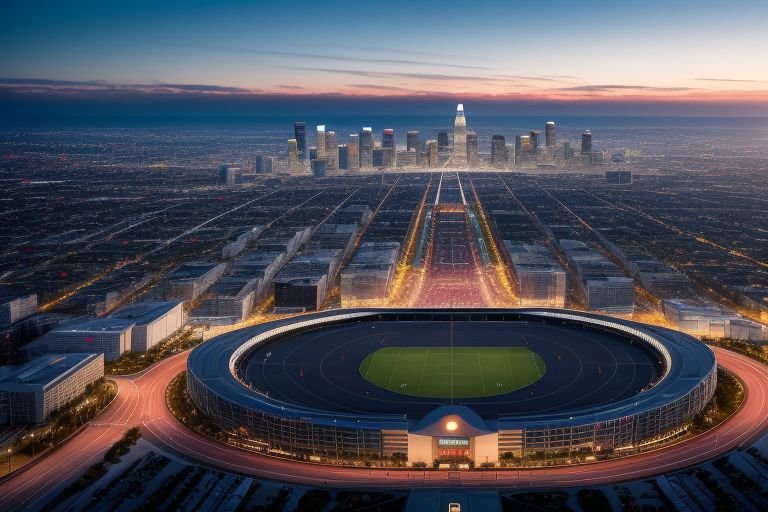The International Olympic Committee (IOC) has unveiled a series of revolutionary changes for the 2028 Summer Olympics in Los Angeles, marking a significant shift in the Games’ structure and focus. In a press conference held in Lausanne, Switzerland, IOC President Thomas Bach outlined the new initiatives to modernize the Olympic movement and appeal to a younger, more diverse audience. The announcement has sent shockwaves through the sporting world, with athletes, officials, and fans debating the merits of these sweeping reforms.
Introducing several new sports to the Olympic program is at the heart of the changes. Esports will debut as a medal event, with competitions in popular titles such as League of Legends and Rocket League. This move recognizes the growing global popularity of competitive gaming and aims to attract a younger demographic to the Olympics. Breaking (breakdancing) will be expanded from its initial inclusion in Paris 2024, with more medals up for grabs in various styles and categories.
Perhaps the most controversial change is replacing the traditional marathon with a virtual reality endurance event. Participants will compete in a simulated environment replicating the challenging 26.2-mile course through the streets of Los Angeles. The IOC argues that this format will make the event more accessible to athletes from countries without advanced training facilities while reducing the race’s environmental impact. Critics, however, argue that it diminishes the essence of the marathon and its historical significance.
In a nod to the host city’s entertainment industry, the IOC has also announced the inclusion of a “cinematic sports” category. This unique event will combine elements of athletics and filmmaking, with teams of athletes and filmmakers collaborating to create short sports-themed films that will be judged on both athletic performance and artistic merit. The move has been praised by some as an innovative way to blend sport and culture, while others view it as a departure from the Olympics’ core values.
Climate change concerns have also significantly shaped the 2028 Games. The IOC has mandated that all venues and facilities must be carbon-neutral, strongly emphasizing using renewable energy sources and sustainable materials. Furthermore, a new medal category has been introduced for “eco-sports,” which will showcase environmentally-friendly athletic pursuits such as blogging (jogging while picking up litter) and sustainable surfing.
The changes extend beyond the addition of new sports. The IOC has announced a radical overhaul of the medal ceremony format. Instead of the traditional podium presentations, winners will receive their medals in immersive, augmented reality experiences that can be shared globally in real-time. This digital-first approach aims to make the Olympic moments more accessible to fans worldwide while reducing the logistical challenges of organizing physical ceremonies.
In response to calls for greater athlete empowerment, the IOC has also introduced a new governance structure that gives competitors a more significant voice in decision-making processes. An Athletes’ Council will have veto power over certain aspects of the Games’ organization, ensuring that competing interests are always at the forefront of planning and execution.
As news of these changes spreads, reactions from the sporting community have been mixed. Many young athletes and tech enthusiasts have expressed excitement about the modernization of the Olympics, seeing it as a necessary evolution to keep the Games relevant in the 21st century. Traditional sports purists, however, have voiced concerns about the dilution of the Olympic spirit and the potential loss of cherished traditions. The debate will likely intensify as the 2028 Games draw closer, with the success or failure of these innovations set to shape the future of the Olympic movement for generations to come.









